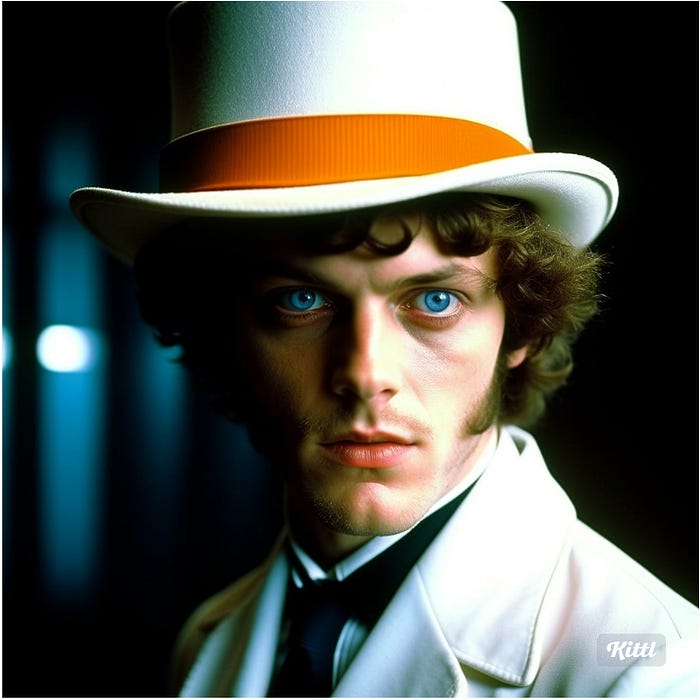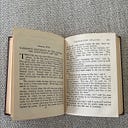A Summary of “A Clockwork Orange” by Anthony Burgess
A Dystopian Exploration of Free Will and Violence
“A Clockwork Orange,” written by Anthony Burgess and published in 1962, is a provocative and controversial dystopian novel that delves into the complexities of human nature, free will, and the consequences of violence. Set in a near-future society, the novel follows the disturbing journey of its teenage protagonist, Alex, as he indulges in a life of brutality, crime, and chaos. Burgess crafts a thought-provoking narrative that challenges readers to grapple with questions of morality, the role of government in shaping behavior, and the delicate balance between freedom and control.

CLICK HERE TO LISTEN TO “A CLOCKWORK ORANGE” ON AUDIBLE
CLICK HERE TO GRAB A COPY OF “A CLOCKWORK ORANGE”
The Setting — A Dystopian Future
The story is set in a grim and oppressive future England, where societal decay, rampant violence, and social unrest reign. The authorities’ inability to control the rising tide of delinquency leads to the emergence of “ultra-violence,” where gangs of young thugs like Alex and his droogs (friends) wreak havoc on the unsuspecting citizens. This society is characterized by a loss of values, the deterioration of family structures, and an authoritarian government seeking ways to maintain order.
Alex and the Droogs
The novel’s protagonist, Alex, is a charismatic but deeply disturbed teenage boy who leads a small gang of fellow miscreants known as the droogs. Alex’s infatuation with violence, cruelty, and classical music drives much of the narrative. He revels in the thrill of causing pain and terrorizing others with his gang, committing crimes that include theft, rape, and random acts of violence.
CLICK HERE TO LISTEN TO “A CLOCKWORK ORANGE” ON AUDIBLE
CLICK HERE TO GRAB A COPY OF “A CLOCKWORK ORANGE”
The droogs’ favorite pastime is “the old in-out,” a brutal phrase for their acts of sexual assault. Their pursuit of ultra-violence stems from their disillusionment with society and the lack of purpose in their lives. The droogs symbolize the consequences of unchecked youth rebellion and the potential for anarchy in a society that lacks guiding principles.
Arrest and Incarceration
After a series of violent incidents, Alex’s criminal activities catch up to him, and he is arrested by the police. During his incarceration, he is subjected to experiments and “treatment” aimed at reforming him and curbing his violent tendencies. The Ludovico Technique, a controversial aversion therapy, is employed to condition Alex to feel intense nausea and discomfort whenever he is exposed to violence or aggressive behavior.
CLICK HERE TO LISTEN TO “A CLOCKWORK ORANGE” ON AUDIBLE
CLICK HERE TO GRAB A COPY OF “A CLOCKWORK ORANGE”
The Controversial Ludovico Technique
The Ludovico Technique is one of the novel’s central themes and a point of great debate. It raises questions about the ethics of using psychological conditioning to modify human behavior and the potential for infringing upon an individual’s free will. While the treatment appears successful in “curing” Alex of his violent inclinations, it also strips him of his autonomy and self-determination, effectively turning him into a mere clockwork figure responding to external stimuli.
Burgess uses the Ludovico Technique as a commentary on the dangers of oppressive governments manipulating human nature for their own ends. By taking away Alex’s ability to choose between good and evil, the state effectively dehumanizes him, leaving him neither capable of evil nor able to pursue goodness.
CLICK HERE TO LISTEN TO “A CLOCKWORK ORANGE” ON AUDIBLE
CLICK HERE TO GRAB A COPY OF “A CLOCKWORK ORANGE”
The Loss of Free Will and Personal Identity
Upon his release, Alex is “cured” of his violent tendencies, but he is left feeling disoriented and detached from his own identity. Stripped of his ability to make moral decisions and act on his impulses, he becomes an empty shell of his former self. The novel explores the notion that true morality and goodness cannot be imposed from the outside but must be a result of personal choice and self-awareness.

The Betrayal and Redemption
Alex’s reintegration into society proves difficult, as he becomes the victim of those he once tormented. He experiences rejection from his parents, who have embraced a new family lodger, and suffers at the hands of his former droogs. Feeling abandoned and isolated, he contemplates suicide but eventually finds temporary solace in a job at a music store.
CLICK HERE TO LISTEN TO “A CLOCKWORK ORANGE” ON AUDIBLE
CLICK HERE TO GRAB A COPY OF “A CLOCKWORK ORANGE”
The Novel’s Conclusion
In the final chapters of the novel, Alex’s future becomes uncertain. He begins to question the value of his reform and the true nature of good and evil. The novel’s ending offers no easy answers, leaving readers to grapple with the complex issues of free will, morality, and redemption.
Themes and Symbolism
“A Clockwork Orange” is a multifaceted novel that explores several themes and utilizes various symbols to convey its messages. The most prominent themes include the struggle between individual freedom and societal control, the consequences of unchecked violence, and the role of art and music in human life.
CLICK HERE TO LISTEN TO “A CLOCKWORK ORANGE” ON AUDIBLE
CLICK HERE TO GRAB A COPY OF “A CLOCKWORK ORANGE”
The title itself, “A Clockwork Orange,” is a symbolic representation of the novel’s themes. “Clockwork” suggests the mechanistic and robotic nature of Alex’s reformation, while “orange” represents something artificial or unnatural. The combination highlights the novel’s exploration of the human condition and the potential dangers of tampering with free will.
Conclusion
“A Clockwork Orange” by Anthony Burgess is a profound and unsettling exploration of human nature, morality, and the balance between freedom and control. Through the disturbing journey of Alex, the novel challenges readers to contemplate the complexities of society and the individual. It raises questions about the role of governments in shaping behavior, the ethics of psychological conditioning, and the importance of free will and personal choice.

CLICK HERE TO LISTEN TO “A CLOCKWORK ORANGE” ON AUDIBLE
CLICK HERE TO GRAB A COPY OF “A CLOCKWORK ORANGE”
Burgess’s masterful storytelling and his skillful use of language, including the iconic Nadsat slang used by Alex and his droogs, contribute to the novel’s lasting impact on literature and popular culture. “A Clockwork Orange” remains a thought-provoking and controversial work that continues to spark debates and discussions about the essence of human nature and the limits of societal intervention.
Disclamer: This page Contains affiliate links. If you choose to make a purchase after clicking a link, I may receive a commission at no additional cost to you. Thank you for your support!
